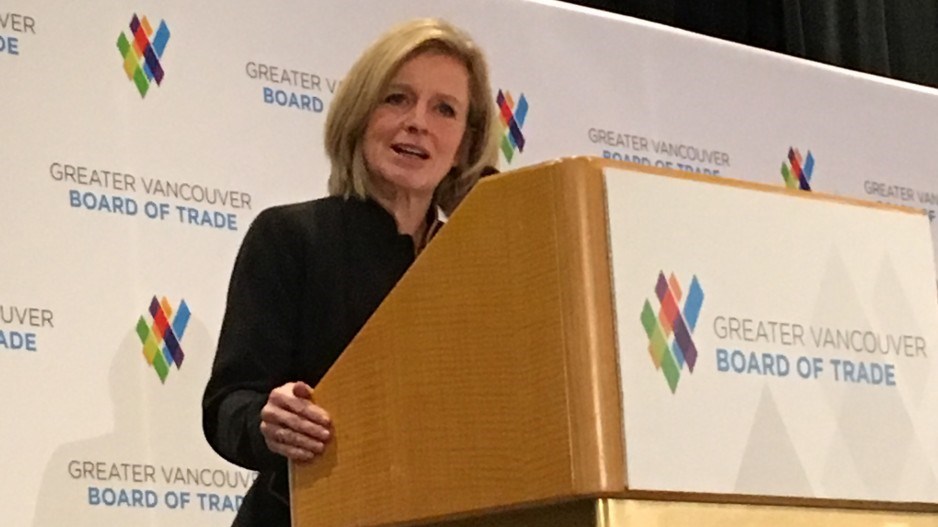Alberta Premier Rachel Notley says the B.C. government’s efforts to “harass” the Trans Mountain pipeline expansion will be less effective now that Ottawa has agreed to buy up those assets from Kinder Morgan Canada (TSX:KML).
Notley was in a celebratory mood Tuesday (May 29), hours after the federal government announced it would nationalize the controversial pipeline project stretching from northern Alberta to the southern B.C. coast.
She said with the federal government taking over the project, the pipeline’s future has never looked more certain and investors would now benefit from Crown immunity.
“There’s no question with the federal government being the owner of the project, they have certain levels of immunity from provincial regulation and jurisdiction that are higher or different or stronger than what would be the case for a private sector proponent,” the Alberta premier told reporters in Edmonton, days ahead of Kinder Morgan’s May 31 deadline to get assurances from Ottawa the project could move forward.
“The efforts of the B.C. government to sort of harass the project — were they to carry on that path — will have less and less effect.”
The B.C. government has been a thorn in the side for the $7.4-billion twinning project, earlier this year proposing new restrictions on the amount of diluted bitumen coming into the province.
But Notley said her government’s pressure tactics against Victoria were effective at drumming up support.
“The wine ban worked and we introduced Bill 12,” Notley said, referring to Alberta legislation that would curb oil exports to B.C.
B.C. is taking the Alberta government to court over the legislation.
Despite the deal with Ottawa, Notley said her government is keeping Bill 12 chambered to use against B.C. if the province continues to fight the project.
While Ottawa has agreed to buy the pipeline and its related assets for $4.5 billion, the Alberta government is putting up to $2 billion towards an indemnity pool.
The $2 billion would then be converted to equity once oil begins flowing through the twinned pipeline, Notley said.
“This ensures that Albertans have a stake in it and it ensures that it gets done and there’s a time limit attached to when that indemnity would be provided,” she said.
When asked what it signals to investors if the government has to buy into a pipeline to get it built, Notley said the government is sometimes going to be required to push through “big national projects.”
“That does not in any way, shape or form mean that we are not a good place for private investment,” she said.
“I would argue we are a more stable place for private investment because we make sure the job is done.”




